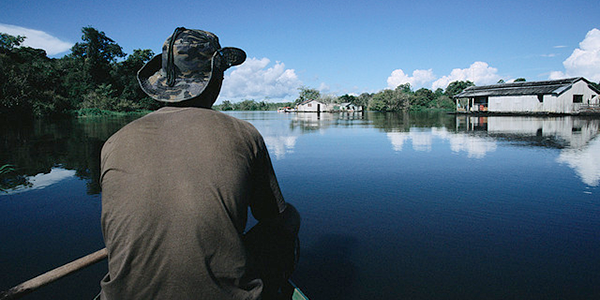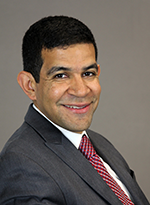
Ricardo Martinez-Lagunes is one of the pioneers of water accounts. As Inter-regional Adviser on Environmental Economic Accounts in the UNDESA, he provides assistance to countries in developing policy relevant information about water. He has organized capacity building workshops in nine countries with the participation of specialists from more than 20 countries. Prior to joining the UN, he has worked for the National Water Commission of Mexico (CONAGUA), where he helped prepare and implement of the National Water Plan, and the National Water Information System to support it. The WAVES team spoke to him as he prepares a workshop on water accounts in Mauritius in the next few months.
1. What are water accounts and why should countries do them?
 |
|
Ricardo Martinez-Lagunes |
Let me try to explain this with an example. When you are running a marathon you need to find the right speed at which you should run. If you run too fast you will not make it to the end. You will get exhausted quickly and won’t be able to continue in the race. On the other hand, if you run too slowly then you will be arriving way behind everybody else, and perhaps you don’t want that either. You want to run as fast as you can, but at a speed that is "sustainable" throughout the marathon. You need information about your running speed and also about your running capacity. You need to find a running speed that does not deplete your running capacity.
In a similar way, for example, countries need to know if they are using their water, or the wood in their forests “too fast” or “too slowly.” Countries need to find their "right speed," the "sustainable speed" that will allow them to continue "moving" for many more years. GDP is similar to a measure of speed in the marathon example. It measures "speed" in terms of production. However, GDP does not tell you if your "speed" is "sustainable." Like in the example of the marathon, you need to know if you are going "too fast" or "too slow." Water accounts, in combination with the other environmental-economic accounts, help us answer this question.
For many countries water is becoming a very important issue. However, the information necessary to make the right policy decisions is fragmented and inconsistent. Water accounts, based on the United Nations standards, provide countries with the conceptual framework to organize their data in a way that it can be transformed into valuable information for the decision making process at national or regional levels.
The accounts provide different signals that are essential for policy analysts to understand how the behavior of the society, and its economic activities, are affecting water resources through time. With these elements projections can be made for the future of water resources.
2. Is a lot of data required to compile water accounts? Are these only for developed countries?
Even in data-scarce countries, water accounts can be constructed. They can be used by countries at different levels of development. The approach is helpful for identifying information gaps, and to set priorities in data gathering processes. A lot of data is already generated in the different operational processes, but need to be identified, and integrated using a common framework.
Data can be collected more effectively, and money can be saved by integrating different data production processes, and this is exactly what you achieve when you use the accounting approach. It helps you to enhance the available data, scarce or abundant, providing them with new meaning by revealing a complete picture that is not visible by looking at isolated data by sectors or disciplines.
3. Which countries have started implementing water accounts? Which developed and which developing countries?
Developed countries, such as the Netherlands and Australia have been doing water accounts for some time already, even before water accounts were adopted as a standard by the United Nations. These countries use the accounts to help in their policy making process. They produce water accounts on a regular basis.
In the world, there are about 50 countries that have done some elements of water accounts, or are planning to. Although not all of them have institutionalized water accounting or compile them on a regular basis. Out of them, about 27 are countries in developing regions, such as Brazil, Colombia, Dominican Republic, Jordan, the Republic of Mauritius, Mexico, Peru, and South Africa.
4. What are some of the challenges?
The main challenge is to make the process of production of the accounts sustainable. Water accounts have to be institutionalized – just as countries compile their GDP each year. They should really change the way in which people collect, integrate, and use the information about water. The implementation of water accounts requires a new way of thinking, a new information culture. It requires opening channels of collaboration between national statistics offices, line ministries, universities, and research organizations. Changing the way people think and work takes time, and effort, but we see that in several countries inter-organizational committees have been formed to share information and develop collaborative processes to integrate their data, using the System of Environmental-Economic Accounting (SEEA) methodology.
We have organized several workshops in different parts of the world in order to assist countries with their process of implementation of water accounts. The next workshop is planned for the spring of this year in the Republic of Mauritius.
5. What is the purpose behind the water workshop in Mauritius?
The UNSD implementation program for water accounts and statistics focuses on supporting sub-regional initiatives. The workshop in Mauritius is being organized in partnership with the Southern Africa Development Community (SADC) and the World Bank. We will invite participants from Botswana, Namibia, South Africa and Zimbabwe, which already participated in another workshop that we organized in South Africa in 2011.
The Republic of Mauritius and Botswana have made a significant progress in the preparation of water accounts. The workshop will provide them with the necessary elements to move forward in their process, and to also serve as an example for the other Southern African countries.
